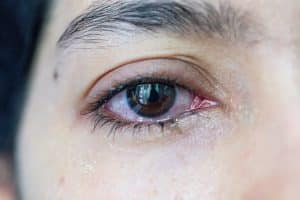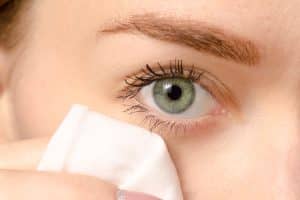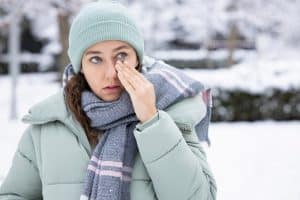Hay fever is a common condition that usually affects people during the spring, summer or autumn months. It’s a reaction to the increased levels of pollen in the air at these times of year. The body inaccurately identifies pollen as a dangerous pathogen and initiates an immune response against it, resulting in a number of irritating side effects that can impact your day-to-day life.[1]
But what exactly are those side effects?
What does hay fever feel like?
Also known as allergic rhinitis, hay fever is a condition which can cause a range of side effects, and they aren’t always the same. You might react to a different type of pollen to someone else who has hay fever, and even if you experience the condition at the same time, you might not experience it in the same way.
Potential side effects of hay fever include:
- Irritated, watering or reddened eyes
- Eye fatigue or tired, heavy eyes
- Sneezing and an itching sensation within your nostrils
- A runny nose or a blocked, congested one
- A loss of smell, especially if you are congested
- An itchy throat, mouth and ears
- Coughing
- A dull headache, or pain around your temples and forehead
- Fatigue and tiredness.
Such an array of irritating effects can have a big impact on your day, preventing you from concentrating on tasks, making it difficult for you to do close work and even reducing the energy you have to get things done.
Many of these signs of hay fever are also associated with other conditions, such as the common cold, flu and other minor ailments. However, the duration and pattern of signs can help you to determine whether you have hay fever or something else.[1]
How long does hay fever last?
Since hay fever is triggered by an environmental factor – the levels of pollen in the air – you’re generally likely to experience the condition until the pollen levels fall again.[1] This contrasts other minor ailments, where you usually feel under the weather for a week or two or until treatments take effect.[2] However, when you take a more specific viewpoint, you’ll see it’s not quite as simple as that.
As mentioned earlier, there are different types of pollen. For example, you might be allergic to grass pollen in particular, rather than tree pollen. This means that you might get hay fever symptoms when the grass pollen levels are high, but not when tree pollen levels are high. You can use weather forecasts to learn about the predicted pollen levels for the immediate future, but these forecasts don’t usually break down the type of pollen that is likely to be high.
That’s because this is usually seasonal, as different types of plants release pollen at different times of the year. For example, tree pollen is typically at its highest in the spring, grass pollen in the summer and weed pollen in the autumn. Therefore, you might experience hay fever heavily during the spring and then feel much better during the summer, or vice versa.
Some people get hay fever throughout the year. This is called perennial allergic rhinitis – literally, hay fever that lasts all year long. If this affects you, it’s usually down to your allergies being triggered by something less seasonal than pollen, such as dust, pet hair or mould spores.
Whether you have perennial hay fever or the seasonal kind, you may be able to use over the counter medicines and remedies to relieve the side effects so you can get on with your day. For example, you could use eye drops such as TheraTears® Eye Drops for Irritation and Redness, which contain euphrasia to help ease itchiness and redness in and around your eyes.[3]
Resources:
[1] – https://www.nhs.uk/conditions/hay-fever/
[2] – https://www.nhs.uk/conditions/common-cold/
[3] – https://www.allergyuk.org/types-of-allergies/hayfever/







